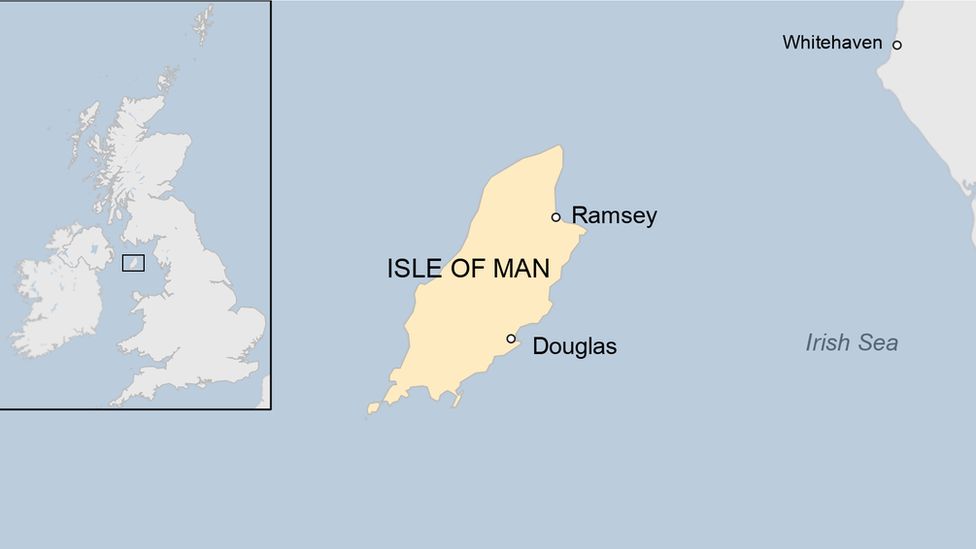Isle of Man profile
- Published

The Isle of Man is located in the Irish Sea between Great Britain and Ireland.
The island is not part of the United Kingdom or European Union, but has the status of crown dependency, similar to Jersey and Guernsey, with an independent administration. Its inhabitants are British citizens.
The Isle of Man was permanently settled by Celts and fell under Viking control in 1079. The Viking legacy is seen in many place names and the title of Tynwald, the parliament, although the Celtic Manx language (gaelg) predominated until the 19th Century, when it started to be replaced by English.
Man passed to the Scottish crown in 1266, and then to the feudal lordship of the Stanley family under the English crown. The British crown acquired the lordship in 1764, but never incorporated the island into the United Kingdom.
The last native speaker Manx died in the 1970s, but serious efforts to revive the language, such as the opening of the Bunscoill Ghealgagh Manx-language primary school in 2001 and language provision at pre-school and secondary-school level, are yielding significant results.
- Read more country profiles - Profiles by BBC Monitoring
ISLE OF MAN: FACTS
- Capital: Douglas
- Area: 572 sq km
- Population: 84,000
- Languages: English, Manx
- Life expectancy: 78 years (men) 83 years (women)
LEADERS
Head of state: King Charles III, as Lord of Mann. Represented by a Lieutenant Governor
Chief minister: Alfred Cannan
In October 2021, Alfred Cannan was elected chief minister of the Isle of Man, taking over from Howard Quayle, who retired from Manx politics after holding the post since 2016.
Mr Cannan, who has been treasury minister for the past five years, said he accepted the role with "humility but also with a strong sense of purpose".
As treasury minister he was a strong advocate for reform of the National Health Service on the Isle of Man.
MEDIA
The island's Communications Commission licenses and regulates radio and TV, although the UK's Office of Communications (Ofcom) oversees frequency use.
National public radio station Manx Radio (Radio Vannin, in Manx) is funded by advertising and a government grant.
The Tynwald parliament was granted autonomy in 1866, and steadily advanced to democracy in step with the United Kingdom. Established no later than 979, it is one of various assemblies that claim to be the oldest parliament in the world.
Tynwald elects the Council of Ministers, presided over since 1986 by a chief minister. Most members of Tynwald are independents.
Manx-born people make up just under half the population, with the rest almost entirely accounted for by immigrants from the United Kingdom and Ireland.
As a crown dependency, the Isle of Man is not part of the United Kingdom. Tynwald passes its own legislation with the assent of the Crown granted in the Privy Council.
The Crown is responsible for defence and diplomatic representation, and acts on the advice of the UK ministry of justice. The Isle of Man has its own controls on immigration and housing.
The Isle of Man has relatively low taxes and this has encouraged a major offshore financial sector that accounts for most of GDP. Over recent years the Manx government has made a concerted effort to cast off the island's reputation as a tax haven, signing tax information exchange deals with over a dozen countries.
Its strategy was rewarded in April 2009 when it was included in an OECD "white list" of jurisdictions meeting international standards on taxation.
Light industry and tourism also play a significant role in the economy, while agriculture and fisheries are steadily losing their significance.
The Manx government has boosted the island as a location for film and TV productions, and more than 100 films and TV dramas have been made there since 1995.
Related Topics
- Published9 April
- Published22 May 2023
- Published18 October 2023
- Published9 January
- Published21 August 2023
- Published22 March